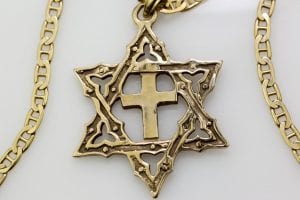Messianic Judaism Funeral Service Rituals
 Messianic Judaism is a religion that combines elements from both Christian and Jewish faith traditions. As a result, the funeral customs traditionally associated with this religious group are also a blend of funeral rituals and traditions that come from its roots in both religions. This blending of faiths does present some challenges in determining how best to carry out funeral rites.
Messianic Judaism is a religion that combines elements from both Christian and Jewish faith traditions. As a result, the funeral customs traditionally associated with this religious group are also a blend of funeral rituals and traditions that come from its roots in both religions. This blending of faiths does present some challenges in determining how best to carry out funeral rites.
In keeping with Jewish customs, Messianic Jews do not embalm the body of the deceased, citing that it has no added benefit and that it slows the natural process of the body returning to the earth. While the body awaits burial it is always watched and never left unattended.
The casket should also be made entirely of wood, containing no metal hinges or nails or screws. This too, helps to ensure that the deceased’s body returns back to the earth as quickly as possible. As a last act of tzedakah (Hebrew for “charity”), the people present at the grave side participate in filling in the grave.
Open or Closed Casket?
The casket may be either open or closed, depending upon which customs are preferred. It is unacceptable for the casket to be open in Jewish traditions. However, in some Messianic congregations where Christian traditions are more prevalent, the casket is left open. This matter is subject to the wishes of the deceased and his or her immediate family members and the customs of the congregation.
The body is dressed plainly in white, and jewelry is not worn. It is preferred that the body is buried within 24 hours.
The Order of the Funeral Service
- Family members will forgive and ask for forgiveness from others on behalf of the deceased. This is done individually in front of the closed casket.
- Men may be asked to wear a kippah, a traditional cap worn by Jewish congregants, during services.
- Memorial remarks are delivered by an officiating rabbi.
- Psalms and other scriptures and prayers are recited.
- The Mourner’s Kaddish is said.
- Family and friends go to graveside. After the casket is lowered, those in attendance help to bury the casket as a last act of tzedakah.
Following the funeral service, there is a noticeable transition from the care of the deceased to the comfort of his or her bereaved family members as members of the congregation make sure their physical and emotional needs are met during their time of mourning.

